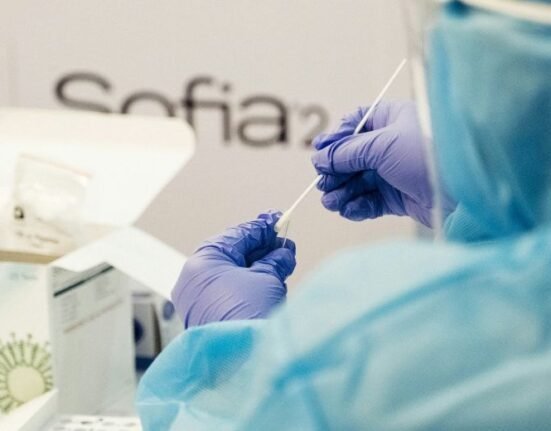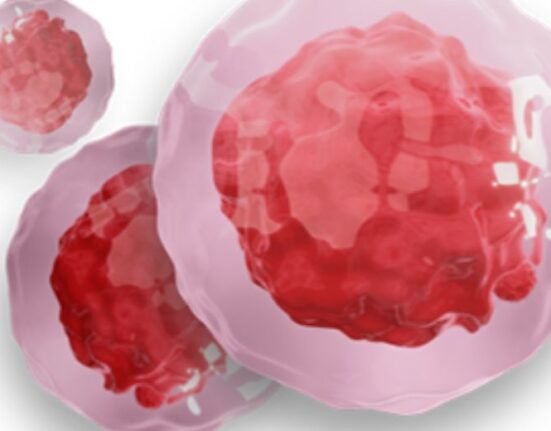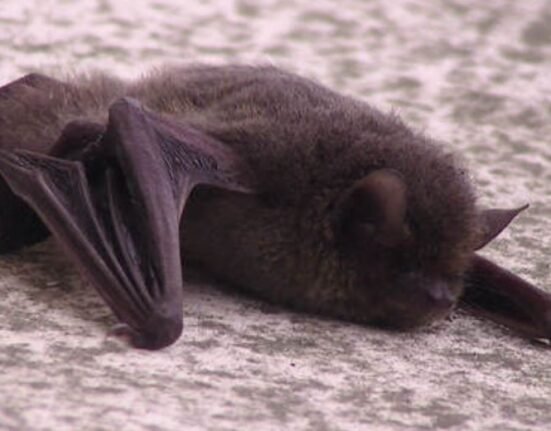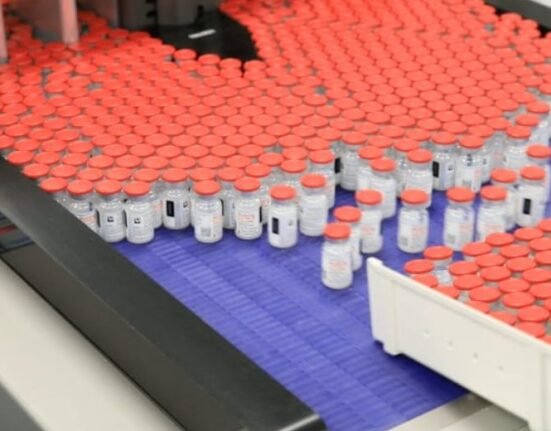Photo: flickr
HQ Team
October 5, 2022: Saline water nasal washes twice a day can prevent hospitalisation and deaths from COVID-19, according to research by the US-based Augusta University.
The study authors compared data from high-risk COVID-19 patients aged 55 and above and suffering from obesity, hypertension or diabetes who had carried out nasal washes with datasets of 3 million COVID-19 cases from the US Centers for Disease Control and Prevention (CDC).
The researchers found that only 1.3 per cent of COVID-19 patients who underwent nasal wash required hospitalisation, suggesting that they were more than eight times less likely to be hospitalised than the 11 per cent in the CDC dataset.
The study was published in the September Ear, Nose & Throat Journal issue. It found that nasal washes within 24 hours of diagnosis can prevent the virus from entering the lungs and causing permanent or fatal damage.
Amy Baxter, the corresponding author of the study affiliated with the department of emergency medicine at the US-based Augusta University, said that the nasal wash helps flush out the infection and keeps the sinus tract hydrated. “If you have a contaminant, the more you flush it out, the better you are able to get rid of dirt, viruses and anything else,” she explained.
The ACE2 receptors cells that bind to the spike protein of the virus resulting in the Coronavirus infection, flourish in the nasal cavity, lungs and mouth. The researchers said a nasal saline wash could help prevent the virus from attaching to receptors.
Moreover, nasal washes are a safe and inexpensive remedy that can be easily administered at home. We need half a teaspoon each of salt and baking soda in a cup of boiled water.
“In areas remote to healthcare, this simple intervention can reduce the likelihood of severe disease,” said Baxter.
Nasal irrigation is a common practice in India and other parts of Asia. It is an Ayurvedic and yogic (ancient Indian medicinal practice) practice called ‘jala-neti’. “Having lived in Thailand, I know that nasal rinsing was a common hygiene practice in Thailand, Vietnam and Laos where they had lower case fatality than the US,” Baxter said.
Some Southeast Asian countries had a natural advantage over other nations during the pandemic due to their cultural practices, such as nasal washes, masking and no handshaking while greeting. “Masking was also relatively normalised even at the start of the pandemic, and local greeting practices involved bowing rather than shaking hands,” Kyle Schwartz, co-author of the study, said. “We think that what really gave countries like Thailand, Vietnam, and Laos the edge compared to other parts of Asia, was the very widespread use of nasal irrigation.”
Sinus rinsing can remove dust, pollen and other debris and help loosen thick mucus. It can also help relieve nasal symptoms of sinus infections, allergies, colds and flu. But remember to use boiled or distilled water, plain water is unsafe, and the saline in the water allows it to pass through the nasal membrane without causing any irritation.
There are special neti pots that can be used for nasal wash.
The US FDA has safety instructions for the correct nasal wash practices.








